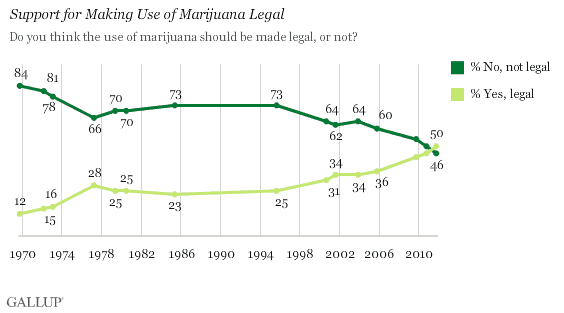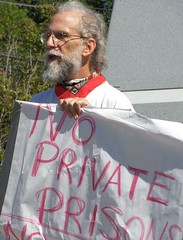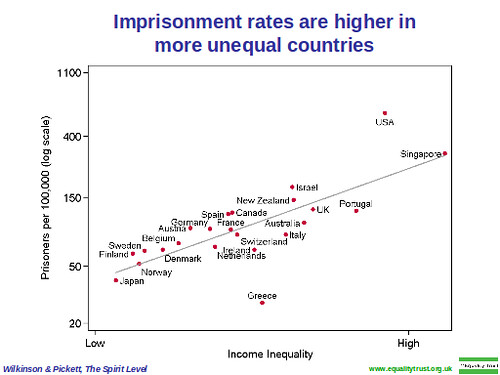I was approached after the meeting and informed that theIndustrial Authority intends to invite communal leaders like myself to brain storming sessions in the future, although I do not know yet the design for such a forum, nor have I received any invitations as of today. Still, if there is one thing that has again become clear in the context of the consolidation issue, our community desperately needs structures that a) allow for more transparency and b) forums in which we can take advantage of the creative energy that exist in our community, INSTEAD of trying to shut people out, to hide information from them, or to push through divisive agendas.
It is my hope that the leaders of the Industrial Authority, as well as the City Council, the Lowndes County Commission, and the Chamber of Commerce for that matter, understand the opportunity we have: to turn a weakness (as exposed by the way we handled biomass, and are currently handling the consolidation issue) into a strength … via communication and cooperation … as is appropriate for a true community.
-Michael.
Tag Archives: VLCIA
Public Transportation recommended by Industrial Authority’s Community Assessment
There is a plan for a public transportation systemAlso on page 9 of the corresponding presentation slides under Product Recommendations: Continue readingin Valdosta-Lowndes County but it currently lacks funding for implementation. Under current budget constraints it will be difficult to implement such a project, but businesses in the industrial parks and outlying areas may want to implement a limited transportation system if they discover that employee attendance is an issue.
What can we do as a community to better cooperate? —Dr. Noll
Dr. Michael Noll, longtime opponent of the Industrial Authority’s formerly proposed biomass plant, asked that same board at their most recent meeting:

What can we do as a community to better cooperate, to better communicate?He also referred to the school consolidation issue and to the nuclear vs. renewable energy issue among the reasons he gave, along with some suggestions on how to proceed, and said he would take the same message to other bodies.
Here’s the video, and a transcript is appended.
What can we do as a community to better cooperate? –Dr. Noll
Regular Meeting, Valdosta-Lowndes County Industrial Authority (VLCIA),
Norman Bennett, Tom Call, Roy Copeland chairman, Mary Gooding, Jerry Jennett,
Andrea Schruijer Executive Director, J. Stephen Gupton attorney, Allan Ricketts Project Manager,
Valdosta, Lowndes County, Georgia, 18 October 2011.
Videos by John S. Quarterman for LAKE, the Lowndes Area Knowledge Exchange.
Dr. Noll sent an edited transcript removing some of the repetition to clarify what he was trying to say: Continue reading
Imprisonment rates are higher in more unequal countries
Why is the USA so high? It’s not more crime, of the violent homicide and robbery variety. It’s harsher sentencing, especially for drug-related crimes. That’s one of many points Richard Wilkinson makes in this TED Talk from July 2011, in which he uses hard data to tie income inequality not only to imprisonment, also to child conflict, drug abuse, infant mortality, life expectancy, mental illness, obesity, high school dropouts, teenage births, and social mobility. The most socially mobile country? Denmark. The least? The USA.
I got his slides from The Equality Trust.
Oh yes: we don’t need a private prison in Lowndes County, Georgia to make a few CCA executives and shareholders richer at the expense of the rest of us. Spend those tax dollars on rehabilitation and education instead.
-jsq
Why a private prison would close: a majority of the American people favor legalizing marijuana use
Emily Ekins wrote for Reason-RUPE 18 October 2011, New Gallup Survey: A Majority of Americans Favor Legalizing Marijuana Use
The latest Gallup poll shows a record high of 50 percent of Americans in favor of legalizing marijuana use. This follows a consistent upward trend, picking up speed in 2006 when 36 percent of Americans favored marijuana legalization.

CCA wrote in its 2010 Annual Report to the SEC: Continue reading
Private prison operator sued for sexual abuse
Elise Foley wrote for Huff Post yesterday, Immigrant Detainees Report Nearly 200 Instances Of Sexual Abuse
This is also the same CCA that runs a prison in Idaho commonly known as Gladiator School because it has twice the rate of assaults as other prisons in that state.More than 180 sexual abuse complaints have been reported in immigration detention centers since 2007, according to government documents obtained by the American Civil Liberties Union as part of a class-action suit filed this week….
All three women in the ACLU lawsuit were held for a time in the T. Don Hutto Residiental Center in Taylor, Texas, a 512-bed detention center privately run on a government contract by private prison giant Corrections Corporation of America.
The suit targets Corrections Corporation of America along with three ICE officials, a former facility manager of the Hutto facility, and a former Hutto guard named Donald Dunn, who was charged last year with assaulting five women and has been accused of abusing more.
We don’t need a private prison in Lowndes County, Georgia. Spend those tax dollars on rehabilitation and education instead.
-jsq
Private prisons —Matt Flumerfelt
Dear Andrea, We spoke not long ago by phone. I just want to let you knowthat plans to bring in a private prison here are not going to sit well with many of us. In fact, it will most likely bring about a repeat of the recent Biomass issue. I don’t mean we are opposed to it. I mean we are vehemently opposed to it. It seems that Allen Ricketts and the other Board members don’t understand that Valdosta’s citizens don’t want to be informed of, for example, what finished products and raw materials will be stored in the distribution center slated to locate in Valdosta AFTER the contract has been signed. We have a right to know beforehand what kind of facility it is and what will be stored there. Informing us after the fact is not transparency. This is an issue that will continue to be revisited as long as the VLCIA continues to act unilaterally without considering the wishes of those who live here. We don’t want to be presented with a fait accompli. Also, the VLCIA is really not doing due diligence when it continues to court businesses that raise concerns over the ethical standards of the Board itself. Thanks. Matt Flumerfelt
Opposed to a private prison in Lowndes County, Georgia. —John S. Quarterman, et al.
 A private prison in Lowndes County would be a bad business decision: it would not increase employment, it would be likely to close because of lack of “customers”, and it would drive away knowledge-based workers. The letter I read to the Industrial Authority Board and Staff Tuesday on behalf of some members of the community sumarizes
appended documentation of all those and other points.
A private prison in Lowndes County would be a bad business decision: it would not increase employment, it would be likely to close because of lack of “customers”, and it would drive away knowledge-based workers. The letter I read to the Industrial Authority Board and Staff Tuesday on behalf of some members of the community sumarizes
appended documentation of all those and other points.
If you’d also like to sign, I’m still collecting signatures, and will periodically drop off more signed copies. Or, even better, write your own letter and send it to the Industrial Authority. Submit it to this blog and we’ll probably publish it.
Here’s the video:
Opposed to a private prison in Lowndes County, Georgia. —John S. Quarterman
Regular Meeting, Valdosta-Lowndes County Industrial Authority (VLCIA),
Norman Bennett, Tom Call, Roy Copeland chairman, Mary Gooding, Jerry Jennett,
Andrea Schruijer Executive Director, J. Stephen Gupton attorney, Allan Ricketts Project Manager,
Valdosta, Lowndes County, Georgia, 18 October 2011.
Videos by Gretchen Quarterman for LAKE, the Lowndes Area Knowledge Exchange.
Text of the letter is appended; follow the link for the documentation. Continue reading
No Private Prison —John S. Quarterman
 At the MLK Monument last Friday, I brought up private prisons.
Most of the 150 people marching to
Occupy Valdosta
did not know that
the Industrial Authority is helping
Corrections Corporation of America (CCA) build a private prison
in Lowndes County.
Even though it would not decrease unemployment, it would compromise
public safety, and it would probably compete with local labor.
At the MLK Monument last Friday, I brought up private prisons.
Most of the 150 people marching to
Occupy Valdosta
did not know that
the Industrial Authority is helping
Corrections Corporation of America (CCA) build a private prison
in Lowndes County.
Even though it would not decrease unemployment, it would compromise
public safety, and it would probably compete with local labor.
We don’t need a private prison in Lowndes County, Georgia. Spend those tax dollars on rehabilitation and education instead.
Here’s the video:
No Private Prison —John S. Quarterman
We are the 99%,
Marching to Occupy Valdosta, Occupy Valdosta,
Valdosta, Lowndes County, Georgia, 14 October 2011.
Videos by Gretchen Quarterman for LAKE, the Lowndes Area Knowledge Exchange.
-jsq
Industrial Authority Board meets Tuesday 5:30 PM
Also, aren’t they supposed to say what an executive session is for?
- Project Report-Allan Ricketts
But at least they do post an agenda now!
So, when will they be posting minutes?
Valdosta-Lowndes County Industrial Authority
Agenda
Tuesday, October 18, 2011 5:30 p.m.
Industrial Authority Conference Room
2110 N. Patterson Street
 Continue reading
Continue reading 